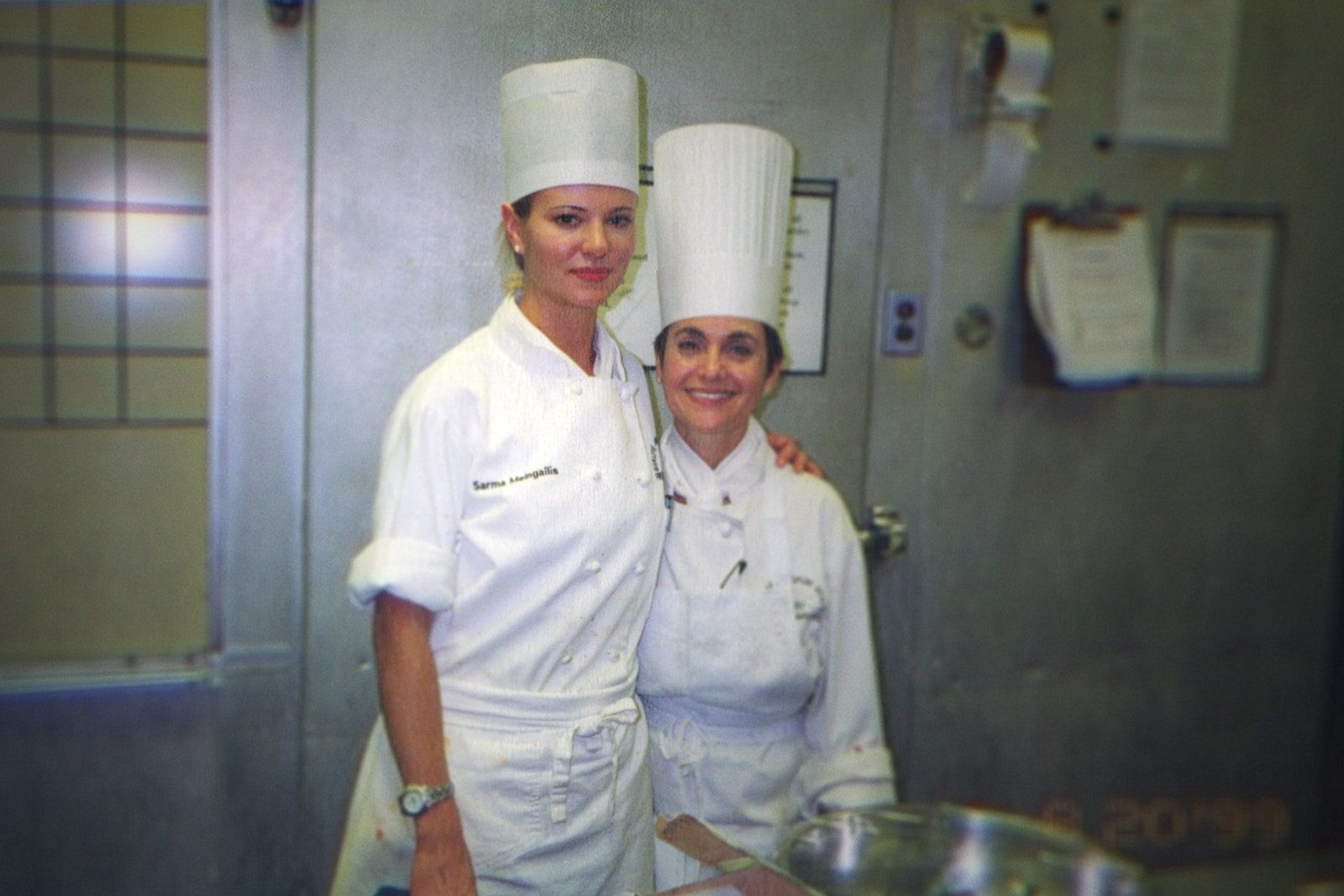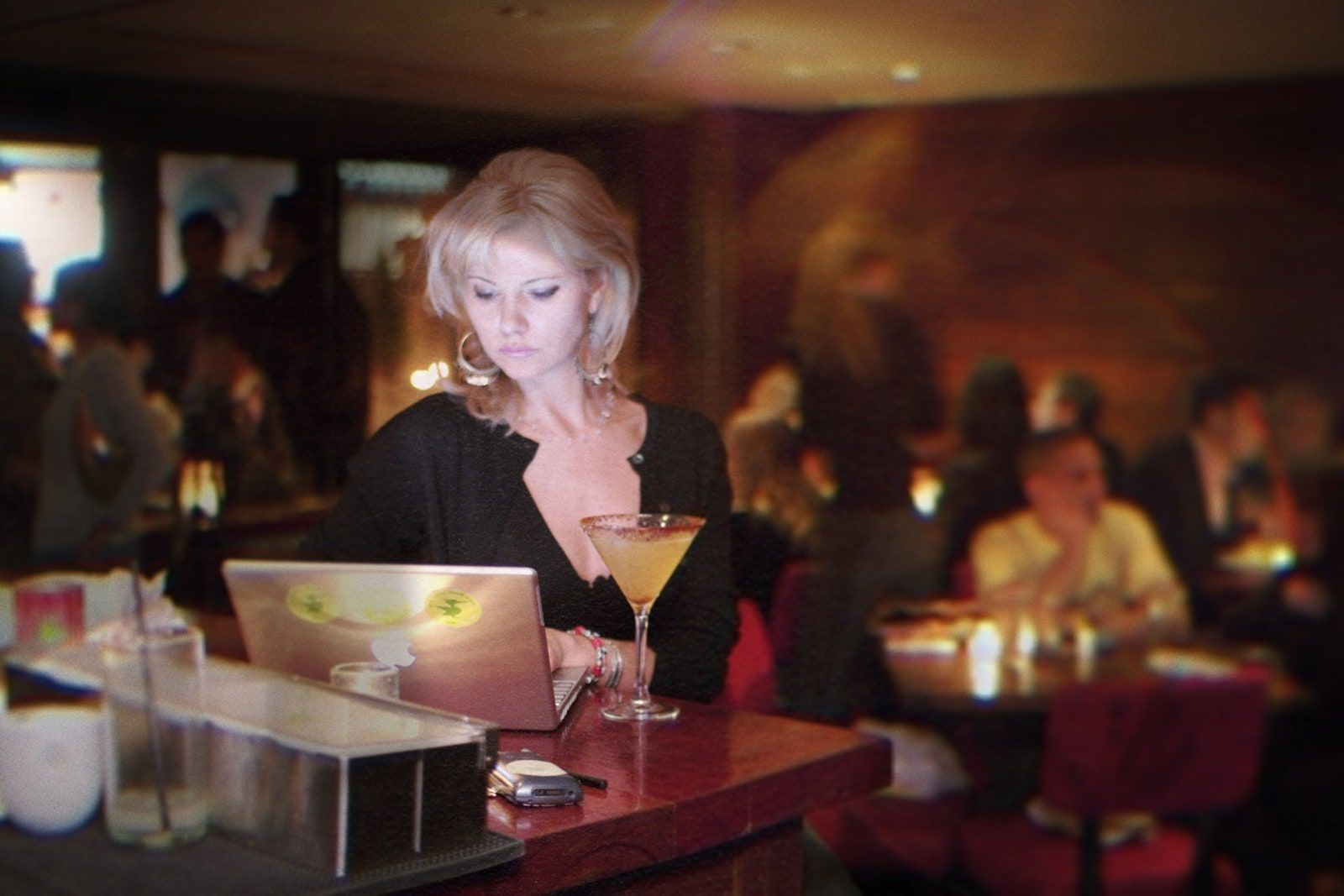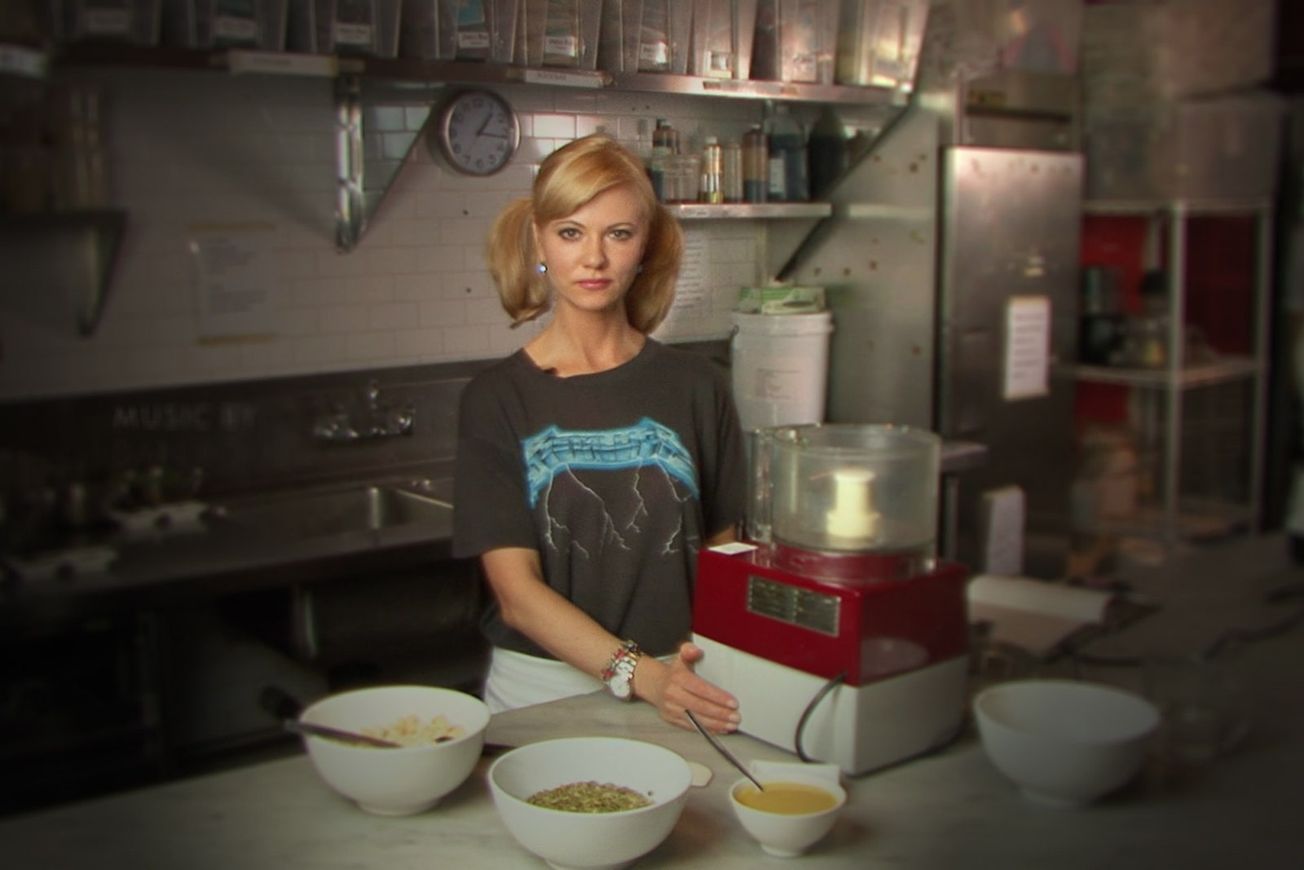By Olivia Kiakides, Second Year, Theatre and English Literature
After the recent success of the Tinder Swindler, Netflix have once again hit us with another true crime fix, Bad Vegan. This new docuseries explores the strange world of the former celebrity endorsed, raw vegan empire, ‘Pure Food and Wine’ and Sarma Melngailis, its passionate owner.
The story takes its disturbing turn after Sarma starts up a romantic relationship which ultimately drains the money out of the company and its investors and has them both running from the police until their eventual arrest in 2016. However, this story is a lot more bizarre than its perhaps cinematic counterpart, Bonnie and Clyde.

Sarma became swept up in this romance which began innocently online, playing ‘Words with Friends’ as she shares how she felt she ‘had fallen in love with him before meeting him.’ We are initially introduced to him as ‘Shane Fox’, however, seeds are planted from the outset of his deceit as in 2011 upon their first meeting, Sarma recounts through slight gritted teeth that he did not appear ‘quite like the pictures that he had sent.’ Moving on, it is her close employees that uncover another truth, that his real name was in fact Anthony Strangis, a clue which Sarma surprisingly brushes off.
The allusive nature of Anthony is initially striking, deemed to be working in an ‘underworld’ as some form of secret agent. He instructs Sarma into a series of tests to undergo in order to be enlightened from the falsified and corrupt mortal world where crucially, money is obsolete. This framework allowed him to quickly push Sarma down a rabbit hole, draining money directly from her restaurant and its employees pay. The dramatic sum of $2 million was taken from the restaurant and provoked staff walk-outs and protests and then its complete closure in 2015.

Our protagonist Sarma comes across as defeated and tired within her first-hand account. She stares into the camera and regrettably explains how she destroyed her impressive vegan empire. We begin to understand that it is not just the restaurant she has lost, but all her employees, which were more like family. The accounts from these former supporters of her are extremely valuable to the story, giving an insight to the impressive highs and unforeseen lows of working for Sarma, and the gruelling and confusing effect that Anthony had when he took over her life and their company.
Aside from these interviews, the most interesting element of this docuseries’ format are the verbatim recorded phone call exchanges between Sarma and Anthony. Set up against multiple moving dramatic backdrops of the story’s locations, elevated by emotive music, these moments effectively kept me engaged with the fast-paced narrative and highlighted the unpredictable nature of Sarma’s predicament.

However, we might potentially pose questions surrounding her innocence. Having been presented as such a capable business owner, taking full ownership at the beginning of the restaurant’s success after her main investor entrusted her over her ex-husband/ business partner. It is perhaps naïve to assume she could have been completely blindsided by the confusing manipulation of Anthony and she might have more to play in the swindling than she wants us to believe.
Interestingly, since its release Sarma has publicly stated that the docuseries’ ending, which presents a surprisingly cordial recent phone exchange between Sarma and Anthony after his release from prison, is ‘disturbingly misleading’, but who are we to trust? Still, one may fall into the seriously dangerous area of victim-blaming if we are to follow this notion carelessly.
Featured Image: Netflix
How did you find Bad Vegan?








